Commentary
Coping with Post-Trump Stress Disorder
Turn off CNN, engage with your friends
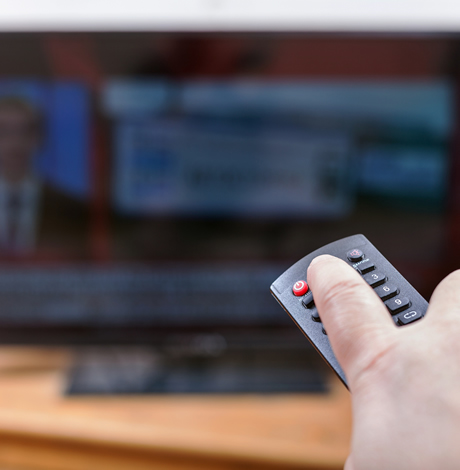
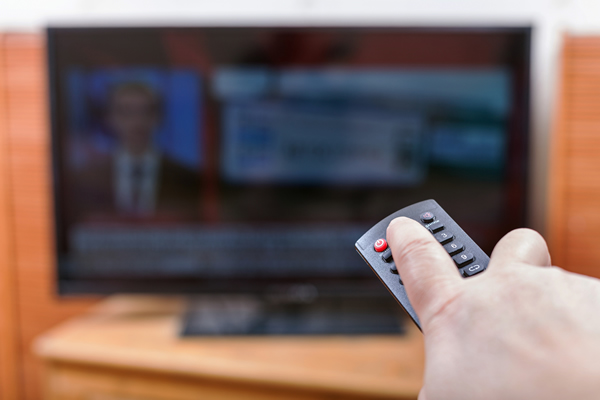
Turn off CNN, engage with your friends.
OK, so that last column wasn’t my last column. I didn’t get what I wanted for my birthday. We still don’t have a woman president. Apparently it’s too soon. Even Saint Mother Theresa couldn’t get the job. She used a private email server named God.
The way I remember election night, everything seemed to go downhill after the election of Illinois’s new Sen. Tammy Duckworth. Then it was a Duck Dynasty downer all night long. The next mourning I was in a fetal position under the covers, moaning, “Alexa, play Bonnie Raitt’s ‘I Will Not Be Broken.’” All day I received your birthday wishes/condolences.
The mourning couldn’t last long. I had some rewriting to do.
Work has gotten me through many crises — Reagan, AIDS, the Bush stolen election, 9/11, the invasion of Iraq, economic collapse.
Two nights after 11/9, I had a show at Gotham Comedy Club in NYC. That night all the comics ahead of me said they would leave the political jokes to me. Thanksabunch came early this year. I started my set the same way I did after Reagan was inaugurated in 1981. I put my head back and screamed. I invited them to join me. After their first scream, I said, “Do it again.” After the second, I played a dead-voiced dominatrix, “I can’t hear you.” During the third sustained, bench-clearing brawl of a primal scream, I wondered what it sounded like out on 23rd Street.
Like many of you I had been looking forward to beginning to deal with my PTSD – Post Trump Stress Disorder. I wanted to stop thinking everyone was an idiot. I hated hating people. I was tired of sneering at Trump women, “Why do you hate yourself so much?” But Post is now Permanent.
In our house we have not watched television, read the paper or listened to NPR since election night. One of my triggers is CNN’s white slab of a John King fingering his wailing wall, while Wolf howls, “We’ve got some important breaking news.” Info-nuggets seep through. That basket of deplorables was actually a cabinetful. Jeff Sessions as attorney general? Egad. I am pretending it’s Leslie Jordan.
My neighborhood is a locked-down, no-fly zone. Except for police helicopters, all night long. It’s not the wall, but the area is walled off. We can’t sit still long enough to shelter at home, so we’ve joined the protests at Columbus Circle, site of one of Trump’s many erections throughout town. I wonder as I scream into the night how many protesters actually door-knocked, phone-banked or even voted. But whatever. Now they are feeling the burn.
Here’s some things.
Don’t isolate. Friday night of the Zombie Apocalypse I went with friends to New York City’s Congregation Beit Simchat Torah. I figured the Jews knew how to get through times like these. Rabbi Sharon Kleinbaum forcefully reminded us that “never again” means “never again.” Earlier that day she and three other rabbis had stood vigil outside a mosque during Friday Muslim prayers to show their solidarity.
The next day, I went to emcee/sit shiva at the Democracy Alliance conference in D.C. I visited the brilliant new African American Museum of History and Culture. Their long, courageous struggle against brutal odds contextualized our current moment of struggle. Donald Trump is merely the white head on the fatherlode of white racism.
Second thing, don’t medicate. Unless it’s food in your reactivated potluck groups. Start one for heaven’s sake. Sometimes food is love in a good way. Call an emergency dinner meeting of your friends. In our next book group we were supposed to discuss “Being Mortal” by Atul Gawande. Because we are all feeling mortally fragile, we’ve decided instead to spend the time checking in with each other and talking about the way forward.
We’re all bringing different dishes to the table. I have mine. Abolish the Electoral College. It’s like Trump U. Two times in 16 years it has left us in huge debt. Abolish electronic voting. Before the mid-term elections. Start now to take back the Senate in 2018. During mass deportations and compiling lists of Muslims, the Teahaddists are going to pinkwash their treachery by using their love of the white Gs, maybe the Ls, what are the Bs and definitely not the Ts to show what compassionate humans they are. Swallow a prism; shit a rainbow.
Third thing. For your own sake, don’t tell me it’s not going to be as bad as I think. Too late. And don’t ruin the surprise, but for the holidays I’m having cloisonné uzi pins made for each study group member.
Kate Clinton is a longtime humorist. She writes regularly for the Blade.
Commentary
A reporter’s observations on the Brazilian, U.S. elections
Polls in both countries proved inaccurate

BRASÍLIA, Brazil / STEVENSVILLE, Md. — I was sitting in my hotel room in Brasília, the Brazilian capital, at 5 p.m. on Oct. 2 when the polls closed. The area around my hotel was quiet as the Supreme Electoral Tribunal began to post the election results on their website. Brazilian television stations continued their live coverage of the election that largely focused on whether former President Luiz Inácio Lula da Silva would defeat incumbent President Jair Bolsonaro. I was nibbling on KIND Dark Chocolate Whole Grain Clusters that I had bought at Dulles two days earlier before I flew to Brazil and sipping a glass of Brahma beer that I had poured for myself while refreshing the Supreme Electoral Tribunal’s website and listening to the reporters talk about the results. I was nervous because Bolsonaro was ahead.
I left my room at around 7 p.m. to get some dinner at a nearby mall. I ordered sushi from a restaurant in the food court. Bolsonaro was still ahead of Da Silva when I returned to my room at around 7:45 p.m., but the margin between the two men had narrowed. Da Silva soon took the lead, but it soon became clear that he and Bolsonaro would face each other in a runoff because neither of them had received at least 50 percent of the vote.
Da Silva defeated Bolsonaro in the second round of the presidential election that took place on Oct. 30. The U.S. midterm elections took place nine days later.


I arrived at Heather Mizeur’s election night party at the Kent Island Resort in Stevensville, Md., shortly before polls in Maryland closed at 8 p.m. Mizeur less than three hours later told her supporters that her bid to unseat Republican Congressman Andy Harris had come up short. The so-called red wave that so many pundits and polls predicted would elect Republicans across the country also failed to materialize.
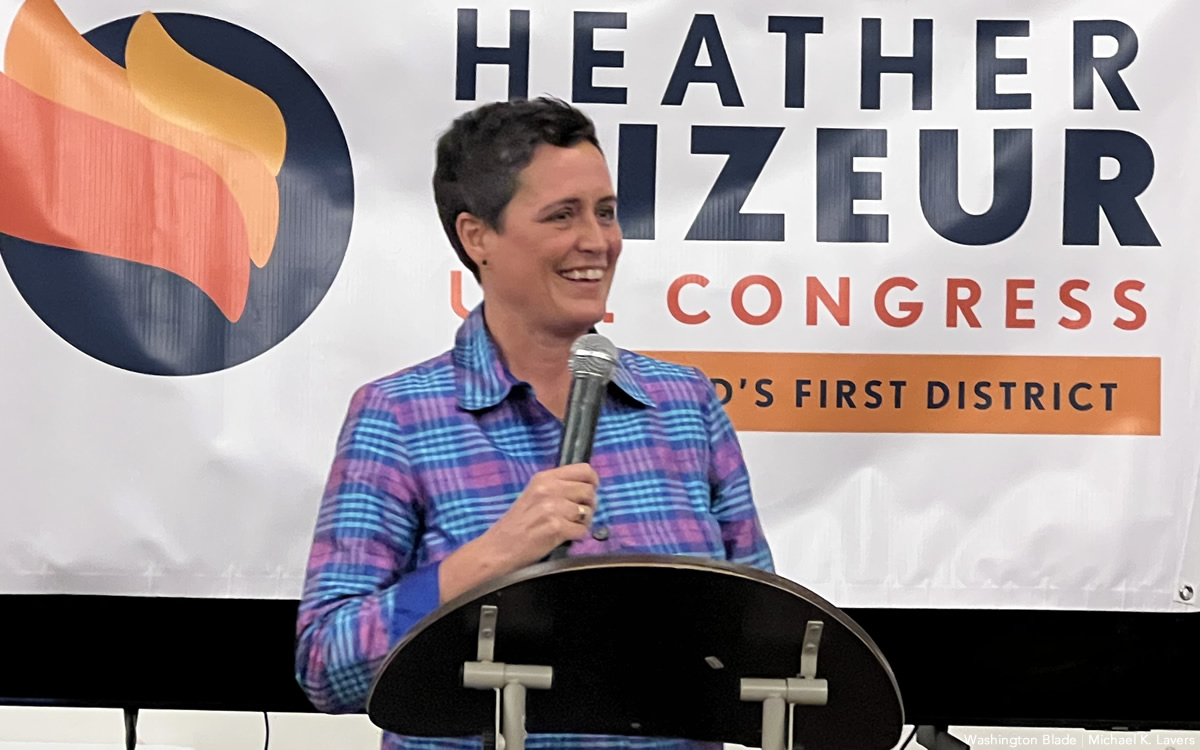
Each country is different and the way they conduct their elections is difficult. I cannot, however, help but compare the Brazilian election and the U.S. midterms. Here are a few observations from a reporter who covered them both.
• Polls ahead of the first round of Brazil’s presidential election predicted Da Silva would defeat Bolsonaro in the first round. Polls and pundits ahead of the U.S. midterms, as previously noted, predicted Republicans would defeat Democrats across the country. Both scenarios did not happen.
• Bolsonaro ahead of Brazil’s presidential election sought to discredit the country’s electoral system. Bolsonaro did not concede to Da Silva after he lost. Former President Donald Trump continues to insist he won the 2020 presidential election. Trump also instigated the deadly Jan. 6 insurrection that took place as lawmakers were beginning to certify the Electoral College results.
• Cláudio Nascimento, president of Grupo Arco-Íris de Cidadania LGBT, an LGBTQ and intersex rights group in Rio de Janeiro, on Oct. 9 told me during an interview at his office that Bolsonaro would “destroy democracy”in Brazil if he were reelected. Mizeur in July described Harris as a “traitor to our nation” after the Jan. 6 committee disclosed he attended a meeting with Trump that focused on how he could remain in office after he lost to now President Joe Biden.
• Voters in São Paulo and Belo Horizonte on Oct. 2 elected two transgender women — Erika Hilton and Duda Salabert respectively — to the Brazilian Congress. Openly gay Rio Grande do Sul Gov. Eduardo Leite on Oct. 30 won re-election when he defeated former Bolsonaro Chief-of-Staff Onyx Lorenzoni in a runoff. LGBTQ Victory Fund President Annise Parker in a Nov. 10 statement noted 436 openly LGBTQ candidates across the country won their races. (One of them, openly gay New Hampshire Congressman Chris Pappas, who represents my mother, defeated Republican Karoline Leavitt in the state’s 1st Congressional District by a 54-46 percent margin.)
Brazil and the U.S. are different countries, but they both have democracies that must be defended. Brazilians and Americans did just that through their votes.
Commentary
My fantastic 15 years at the Blade — hard to summarize
Reflecting on a front row seat to the LGBTQ movement’s historic firsts
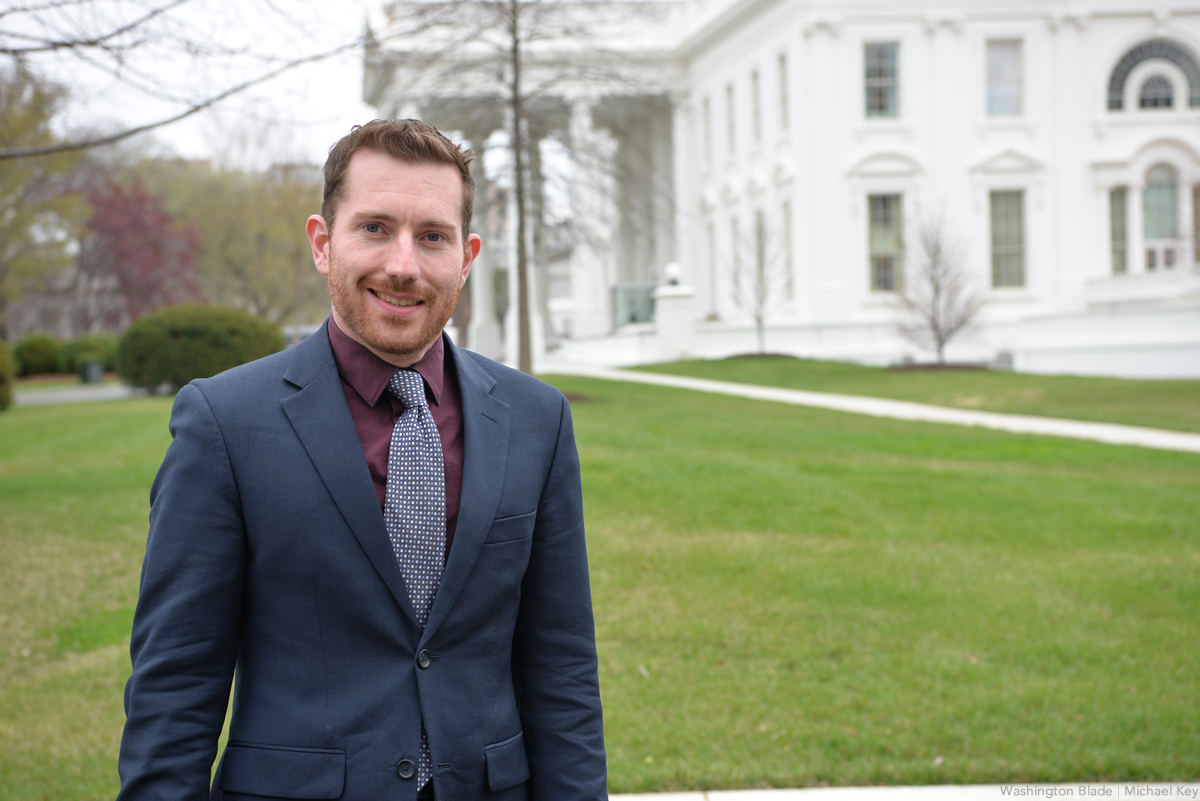
Looking back at the nearly 15 years I’ve worked at the Washington Blade, I find it difficult to summarize my time here in a single essay because the state of play has changed so dramatically for LGBTQ people within that period for the better.
When I first started in January 2008, same-sex marriage was only legal in Massachusetts and the idea of advancing that nationwide seemed like a pie-in-the-sky aspiration. With the public not nearly as supportive as today and continuous losses on the issue at the ballot box, it was a struggle simply to convince Democratic politicians and candidates to support the cause. Meanwhile, openly gay service members were unable to serve in the military and were being expelled on a regular basis thanks to “Don’t Ask, Don’t Tell.” The idea transgender people could serve would be a non-starter.
But the situation would soon change. I came to the Blade at the right time to see massive achievements and had the wonderful gift of a front-row seat to witness them. Nothing like these milestones had ever occurred before in the course of American history. For example, after covering the saga on the legislative path to repeal “Don’t Ask, Don’t Tell,” I was able to go to the ceremony to see President Obama sign the measure into law. Activists, service members and high-profile political figures alike were in attendance and witnessed Obama penning his name to the measure before he concluded, “This is done.”
The 2015 ruling for same-sex marriage was probably the pinnacle of those milestones. I was at the Supreme Court when it issued its decision in favor of marriage equality and was able to witness the celebration, then had the privilege of sitting front-row in the White House Rose Garden as Obama declared justice has arrived “like a thunderbolt.” As a journalist covering these milestones, I also had the privilege of interviewing high-profile figures in the movement and American politics, in addition to being the one to break news on developments in these causes.
My tenure is also marked by the way I advanced my role as news reporter at the Blade to new heights, making the publication highly visible and engaged at the highest levels of government as a White House reporter. During the Obama years, my constant inquiries during the White House nagging the press secretary on Obama’s evolution on same-sex marriage gained nationwide attention. I had the respect of the White House press corps, which thanks to my work allowed the Blade to take part in the pool rotation (a first for an LGBTQ publication), and the White House press staff, which facilitated Obama calling on me for a question during his final news conference (another first for an LGBTQ outlet).
I was so entrenched in the White House press corps that I was able to continue that work through the Trump years, being able to ask President Trump questions on multiple occasions and even getting him to make news on LGBTQ issues. Most recently, during the Biden administration, the White House Correspondents’ Association awarded the Blade with a designated seat thanks to my contributions.
But the time has come when I feel the need to advance my journalism in a new direction. I believe I should give someone else the opportunity to take the reins and represent the nation’s oldest LGBTQ newspaper in the White House briefing room. I hope that person can take advantage of the platform that has granted me so many great experiences.
Here’s my secret: I came out as gay relatively late, either age 24 or 25, then took a job working for the Blade just a few months afterward. It was a quite a leap going within that short period of time from being closeted to being basically as out as one can be as a reporter with an LGBTQ newspaper. I feel like I never really had the experience of being regular, gay Chris and I look forward to exploring and enjoying that.
So thanks to everyone at the Blade for giving me these wonderful opportunities, from Kevin Naff for all the leeway as editor he’s given me to pursue new endeavors, to Lynne Brown for providing stability as publisher and Brian Pitts for heading our sales to ensure there’s money in the bank to make it all happen. It was a team effort, and the work by Michael Lavers as international editor, Michael Key as photo editor and Lou Chibbaro Jr. as veteran reporter was essential.
So now I pass the baton. I’m not leaving journalism and my next project may be underway by the time this essay is published. There’s no way, however, I would forget the historic milestones I saw or being able to take the Blade to new heights, which are memories I cherish and know I won’t be able to replicate elsewhere.
Chris Johnson is the former White House reporter for the Washington Blade.
Commentary
Should we vacation in homophobic countries?
Secret gay bar in St. Petersburg seemed unfathomable
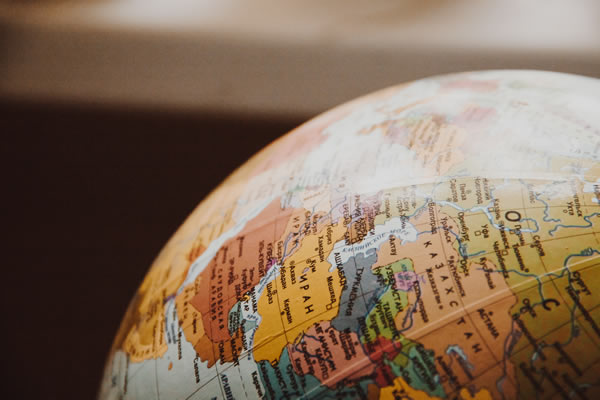
ST. PETERSBURG, Russia — The tiny rainbow light projecting onto the corner baseboard of the bar and tipsy people constantly belting out Mariah Carey karaoke songs clued me in. There was something unique happening here. It wasn’t until a gentleman with glittered cheeks approached me to say how fabulous my dress was that I suddenly clocked it. I’d unknowingly ended up in a gay bar in the middle of Saint Petersburg, Russia.
A flood of overwhelming joy first took over. Before coming to Russia on vacation, I knew all too well the discrimination and fear LGBTQ Russians lived in. A gay bar in Russia, even a secret one like this, seemed unfathomable, so being where people could unapologetically be out and proud — even if it was only in the compounds of these four walls — was emotionally profound.
But within seconds, dread took over. Were we all safe? If you didn’t know what to look out for, you’d assume this was just like every other neighboring non-gay bar — it wasn’t hidden or anything. I wondered what was stopping a homophobe, if they found out, from vandalizing the bar or doing something much worse.
After all, Russia approved a legislation in 2013 prohibiting the distribution of information about LGBTQ matters and relationships to minors. The legislation, known as the “gay propaganda law,” specifies that any act or event that authorities believe promotes homosexuality to individuals under the age of 18 is a punishable felony. According to a 2018 report by the international rights organization Human Rights Watch, anti-LGBTQ violence in the country spiked after it passed. The bill perpetuates the state’s discriminatory ideology that LGBTQ individuals are a “danger” to traditional Russian family values.
A recent poll indicated that roughly one-fifth of Russians want to “eliminate” gay and lesbian individuals from society. In a poll conducted by the Russian LGBT Network — a Russian queer advocacy group — 56 percent of LGBTQ respondents said they had been subjected to psychological abuse, and disturbing reports of state-sanctioned detention and torture of gay and bisexual men in Chechnya, a semi-autonomous Russian region, have surfaced in recent years.
Considering this, it was no surprise that most of my gay friends refused to come on vacation with me to Russia. In our everyday, gay people don’t march around with a gay Pride flag so homophobic Russians would probably never be able to tell which tourists are gay. However, many LGBTQ people will never travel to Russia or any other homophobic country for one logical reason: Fear.
Unfortunately, many exotic locations abroad are dangerous territory for the LGBTQ community to be in. Physical safety isn’t guaranteed in countries like Nigeria, Iran, Brunei and Saudi Arabia where same-sex relationships are punishable by the death penalty. Not to mention the numerous transgender people who’ve been detained and refused entry to similar countries — even when it’s only been a layover! However, an alternative reason why someone may refuse to vacation in a homophobic country is having a conscience.
When you pay for accommodation, nights out and sightseeing tours, your money doesn’t just reach the hotel staff and waiters pockets — you’re also financially supporting that country’s government. Money talks so not giving homophobic countries tourism puts pressure on them. Ethically, why would anybody ever want to support a country through tourism that treats their LGBTQ community like dirt? Homophobia shouldn’t be shrugged off simply as a local “culture.”
Other LGBTQ people firmly embrace the right to go anywhere they choose, and that choosing to go gives them power. Homophobic countries still have closeted LGBTQ folks living there running underground gay spaces and groups. Is turning our back on the wonderful people and beautiful culture of a new place turning our back on their gay community too? There are countries where gay marriage is legal and trans rights are progressive, but abortion laws remain backwards. Do we boycott these countries too? And, how do we collectively define what a homophobic country is? Is legalizing gay marriage a requisite? Gay marriage is still illegal in Thailand when it is one of the most gay and trans-friendly countries in the world.
Increasingly the line of what is “right” and “wrong” erases all grey areas. Morality and activism — particularly when politics is involved — is never straightforward. The biggest surprise about Russia was how my own stereotypes I’d picked up from the media weren’t always true. Saint Petersburg in Russia is far more liberal and gay-friendly compared to rural Russia but the fact still stands that my bisexual friend and I actively chose to go to a homophobic country for pleasure. In an ideal world, anybody of any sexual orientation or gender identity would be able to vacation wherever they want but that’s sadly not reality. In the meantime, the wanderlust LGBTQ community will go on gay cruises that guarantee safe refuge or put civil rights and ideological differences aside to experience the world’s natural wonders and incredible cultures.
Ash Potter is a writer and radio host.


















